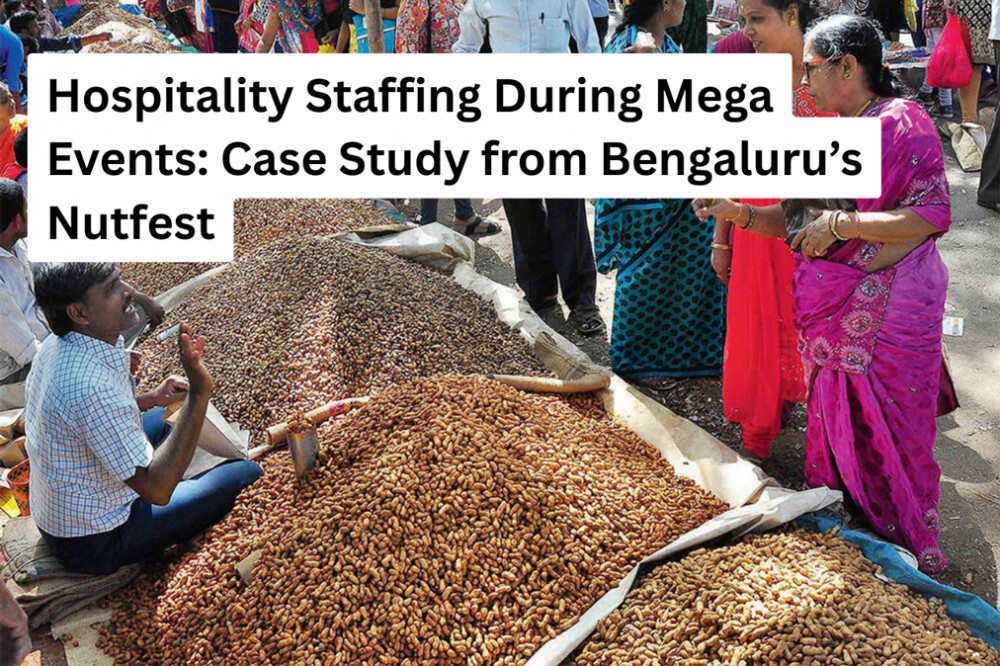
Soft Skills Go Regenerative: Why Empathy and Local Knowledge Matter More

India's hospitality industry has always been known for warmth, generosity, and the concept of "Atithi Devo Bhava," or the guest is God. However, the hospitality sector is experiencing massive tectonic shifts as it looks to 2025. Changing traveller expectations, global sustainability pressures and the Gen Z workforce have changed how hotels, restaurants, and resorts will operate moving forward. Fulfilling traditional hiring confidence in candidates with degrees and formal hospitality certifications won’t cut it. Regenerative skills, especially empathy and local knowledge, are the new differentiators.
Hospitality is more than just service in India; it is an experience. And experiences take people who can connect, adapt, and regenerate value for the guest and local community. This makes soft skills not just an add-on, but foundational.
1. Why Degrees Alone Can No Longer Cut It
For decades, the hospitality recruitment machine in India has been driven almost exclusively by formal degrees - Hotel Management, Culinary Arts, Business Administration. These degrees were little more than assurance that an applicant possesses certain technical knowledge and skills in fields including the food and beverage service, kitchen operations or hotel administration. But today's guests are no longer seeking thoughtful, technical perfection in their day-to-day experiences.
- Experience over technical efficiency: A five-star property can have staff operating around the clock in robotic precision, but if there are no emotional connections, there will be no loyalty.
- Millennials and younger generations: Today's guests are just as likely to be influenced by images in their Instagram feed and travel blogs, so they desire unique, personalised experiences that tell a story far more than they value simply showing up at the airport and checking in / checking out of a hotel as a series of technical processes.
- Crisis-ready: Given the last two years, hospitality staff have learnt that their ultimate super-powers are resilience, adaptability and empathy; not memorising textbook chapters.
So, while degrees may still hold value, today they are only one of many variables for gauging success. For example, a waitress with empathy, genuine interest and cultural sensitivity will invariably provide a much better guest experience than a manager with degrees, diplomas and credentials who has lost their connection to being human.
2. Empathy: The Heart of Indian Hospitality
Empathy enables staff to:
- Identify unmet or unspoken needs. For example, picking up that a guest just flew back from an international flight, and is probably tired, and as such would prefer a light meal rather than a full dining experience.
- Respond appropriately to conflict in a professional way. An empathetic front-desk executive is able to listen and respond from a place of genuine connection and intent, turning the complaint into a lasting relationship.
- Assume appropriate approaches for different guests. The range of guests coming to India is total and all-encompassing—from budget backpackers to high-end luxury travellers. Through empathy, staff can interpret or adapt tone, experience, and engagement based on the guests' cultural and emotional cues.
Boutique homestays in Kerala, or in Himachal, are thriving because of the hosts not having formal qualifications, but because of genuine empathy, to share tea, to listen to stories, and to guide through local rituals. This connects and lasts much longer than a luxury stay that may have been well crafted and polished, but glorifies disengagement.
3. Local Knowledge: The New Luxury
Contemporary travellers want authentic local experiences. This is an area where hospitality professionals with deep local knowledge prosper.
- Culinary connection: Guests want to taste traditional dishes prepared in context, such as Rajasthani dal baati churma, and Nagaland’s smoked pork with cultural significance. It is one thing to have a creatively trained chef, but they will not deliver the same authenticity as someone brought up within that flavour profile.
- Guided immersion: Local personnel in Ladakh explaining the monasteries, or tribal hosts in Odisha talking about dances that connect to their place, through regenerative tourism, you can preserve culture while engaging travellers.
- Sustainability through locality: An understanding of local materials, crafts, and customary practices assists hotels to weave environmentally friendly practices in a culturally reverential manner, whether you are implementing bamboo straws in the northeast of India or collaborating with artisans employing innovative, handwoven textiles in five-star resorts in Gujarat.
In conclusion, the way local knowledge builds hospitality is through the process of personalisation. Local knowledge can root place into guests' hospitality experiences, empowering them to be more memorable, unique and regenerative than merely transactional.
4. Regenerative Hospitality - An Increasingly Essential Global and Indian Mandate
Regenerative hospitality is hospitality that is a step beyond sustainability. Sustainability minimises damage, whereas regenerative hospitality restores and supports communities and ecosystems.
- Community-first design - Resorts in Sikkim and Uttarakhand are increasingly sourcing produce from local farmers to reduce carbon footprints, while also supporting and empowering local communities.
- Cultural regeneration - A Rajasthan Rehat Hotels pays artisans in the region to create decor and tell stories for guests. They pay these local artisans and undo the death of traditional art forms while creating a localised traveller experience.
- Empathy-led leadership - Managers who empathise with their staff and guests can create workplaces where employees feel valued. This sense of belonging leads to a reduction of attrition, which is another persistent issue of hotels in India.
You cannot learn this regenerative approach from an academic institution. However, empathy and local area knowledge build the emotional and contextual foundation of regenerative hospitality.
5. Why Soft Skills Define Degrees in Hospitality Hiring in India
- Guest expectations evolve. Indian millennial and Gen Z travellers now place a high value on personalisation, cultural depth, and emotional connection over brand recognition or prestige.
- Hospitality is about people. Buildings, menus, and interiors all play a part in creating a guest experience, but human connection is ultimately what defines loyalty.
- Crisis management requires empathy. Navigating a monsoon affecting Goa travel or an over-promising wedding in Udaipur is better done by a top-notch staff with empathy and creativity than by degree-holding staff using rigid frameworks.
- Local storytelling differentiates a hotel. A stay by a guest is so commoditised that a hotel must be known for providing authentic local experiences to continue thriving in an industry known for low margins. Accessing authenticated knowledge of the locality depends on lived experiences, and not books.
As India’s hospitality sector transitions into an era of regenerative tourism, soft skills will play a vital role. Empathy and local intel aren’t sidelined skills; they are arguably the principal engines of unforgettable, sustainable and regenerative guest experiences. Diplomas and degrees may provide technical scaffolding, but without the heart and soul of humans and regional cultures, hospitality is mechanical.
If the future of Indian hospitality is envisioned as hospitality workers who can connect from cross-functional cultural perspectives to regenerate local communities and express, in a contemporary way, the ethos of Atithi Devo Bhava, then empathy and local intel more than diplomas will further distinction within the live marketplace of this complex, rewarding and regenerative industry.
Related Blogs

The Rise of Boutique Hotels: Recruiting for Experience, Not Size
73 Views

Top 5 Hospitality Roles Most in Demand This Quarter
71 Views

Hospitality Staffing During Mega Events: Case Study from Bengaluru’s Nutfest
86 Views

Festival Hospitality: What Food Events Teach About Guest Management & Staffing
194 Views

Little Guests, Big Smiles: How Hotels Design Family-Friendly Experiences
171 Views